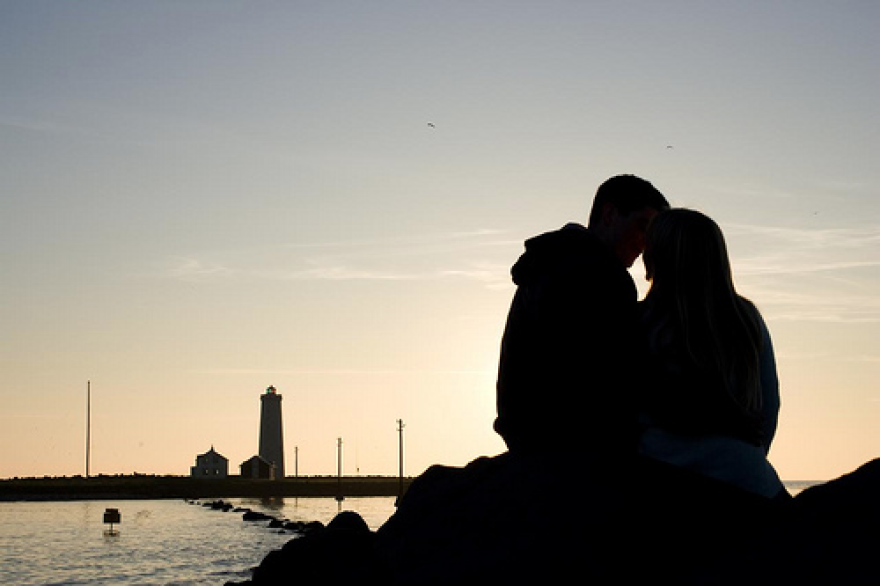Lovers in happy times often take intimate photos and videos of each other. But after an angry break-up, those images can become weapons.
It happened to Holly Jacobs, a Ph.D.-level researcher who lives in Florida. A month after her break-up, someone -- and she suspects her ex-boyfriend -- posted nude pictures and sex videos of her all over the Internet, sometimes on specialty "revenge porn" web sites.
"I had to leave my job, I had to change my name, all of my relationships were potentially destroyed. Thankfully, they weren't, but it put every aspect of my life at risk," said Jacobs, who now runs an anti-revenge porn web site.
"Revenge porn," the non-consensual posting of sexually-explicit media on the Internet to embarrass or harass someone else, is one of the latest illustrations of the asymmetrical power the web places in the hands of angry people.
'I had to change my name. All of my relationships were potentially destroyed.'
And it is increasingly becoming a target, although a slippery one, for state legislators. In Florida, a state senator has announced he'll make his second attempt to criminalize revenge porn next year.
Jacobs, 30, thought she had achieved an amicable break-up with her ex. But just a few days after updating her Facebook profile with a new relationship, somebody hacked her account and replaced her cover photo with a nude picture.
Of her.
Later, sex videos featuring her began appearing elsewhere on the Internet, sometimes with her personal contact information and the names and addresses of her employers and family members.
She went to the police and found out there's no law against revenge porn and that her only option was a lawsuit that would be costly and offer no certainty except that the pictures would become public records.
Meanwhile, various Internet creeps were writing and calling her, some of them threatening violence. University of Miami law school professor Mary Anne Franks says there is nothing unusual about that.
"What most experience is physical threats" said Franks, who works with Jacobs on an on-line anti-harassment campaign called the Cyber Civil Rights Initiative. "They'll be stalked, they've been threatened with rape, death and kidnapping."
But Jacobs wasn't alone. Similar stories had reached the ear of Seminole County State Sen. David Simmons. He was shocked at the power that the Internet puts in the hands of angry people.
"It's the ability of a person to literally destroy another person by publication that can go all over the world," Simmons said. "That's a lot of power that's given to an individual to make some really bad decisions, destroy their lives and humiliate the other person."
Simmons filed an anti-revenge porn bill in the 2013 legislative session. It got three unanimous approvals from three committees, but stalled and died before adjournment.
He's preparing another bill for the session that begins next March. But he's facing opposition, some of it from his own allies.
Franks, the UM law school professor, is drafting model legislation for Simmons to consider. But she and Simmons disagree on a significant point: the senator wants to criminalize nonconsensual image posting only when there's an intent to harass or do harm.
Franks opposes that. The victim is harmed no matter what the intent, she says, and she worries that turning a mindset into a necessary element of the crime would make it more vulnerable to a First Amendment challenge.
That worries Simmons only a little. He's also a lawyer.
"You have to look at young women who have pictures taken of them by their boyfriends, then find those pictures on the Internet. They were intended to be private. In those instances, the right to privacy significantly outweighs the right of freedom of speech."
The American Civil Liberties Union, which believes hardly anything outweighs freedom of speech, agrees with Simmons. Florida ACLU spokesman Baylor Johnson says the bill should be very narrowly drawn, if it must be drawn at all.
"People need to understand, you can’t create new exceptions to the First Amendment for every awful idea that people come up with. If it's too broad, it can make criminals of lots of people, even people behaving innocently."
Johnson said the ACLU would also be more comfortable if conviction required a proven intent to cause harm.
Retorts Franks, "The ACLU should know better."
Other states have already outlawed revenge porn with various approaches. California, for instance, took the step but made the crime only a misdemeanor. Simmons, Franks and the Florida victim, Holly Jacobs, agree that making it a felony would be more of a deterrent.


